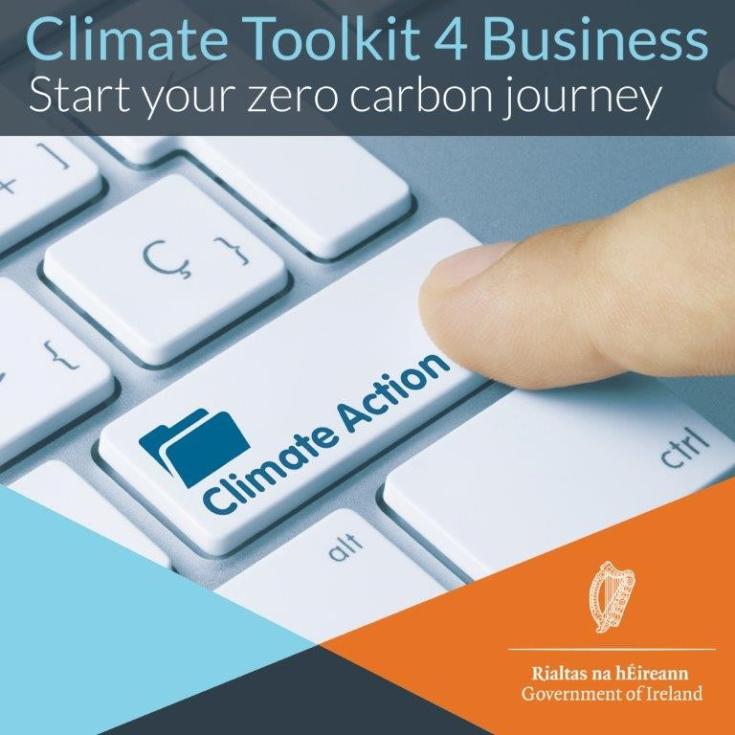Climate Toolkit 4 Business – Helping SMEs go Green
Countries around the world are faced with a pressing need to act on climate change mitigation. Many have set ambitious policy targets for a more sustainable economy. Ambitious targets demand profound transformations in how economies and societies work and require that all engage in the transition.
The OECD notes that Small and Medium-sized Enterprises in their countries represent 99.7% of all enterprises and 60% of total employment. They are also major engines of value creation, accounting for between 50% and 60% of value-added in OECD economies. SMEs are an essential engine to the green transition. While their environmental footprint individually is small, their aggregate impact is substantial. Evidence points to a contribution of 60–70% to industrial emissions, as well as to other aspects of environmental degradation such as waste. In this context, inclusive solutions for transition are required. Which, leads to two entangled policy objectives: How can we achieve environmental objectives and simultaneously deliver economic growth that is inclusive and widely-shared?
Ireland’s Department of Enterprise, Trade and Employment (DETE) are committed to supporting Irish SMEs and have developed with stakeholders a simple easy to use online Climate Toolkit 4 Business (CTK4B) which provides a single point of information and support in a complex policy space. The carbon calculator tool and climate action plan generator provide SMEs with practical ways to take action to reduce emissions, increase resilience, remain competitive in low-carbon economy of future.
Aisling McCarthy, Climate Action Unit, DETE, notes “climate change is here, and its effects are devastating. We urgently need to adapt to reduce our contribution to greenhouse gas emissions and prepare for a better future. Small businesses have a big part to play. From the products we purchase, to the energy we use, and services we require, there are many ways to make a difference. This Toolkit provides practical and cost-effective actions that every business can take to support this transformation.”
Claudia Soncin, TCI Network, believes “the coordination of so many governmental stakeholders and industry representative groups in developing the CTK4B shows the importance Ireland places on its shared high-level end-goal of zero carbon emissions by 2050 This is inspiring for other regions, who could share such tools through their clusters to reach more SMEs quicker”.
Building sustainability into Irish business is critical because:
- It matters to customers: Customers are looking for providers that are sustainable. Value is added to products/services by reducing its carbon impact. Customers value transparency: robustly measuring and demonstrating your emissions is good business practice.
- It matters to staff: Attracting and retaining talent depends on matching their values and expectations. Being a sustainable, environmentally conscious employer will motivate and engage teams, while developing the skills and knowledge companies need.
- It can help firms ‘bottom line’: Efficiency in how businesses use material and energy resources is important. Making businesses more resource efficient or providing new sustainable products or services can be cost-efficient and profitable too.
- It makes businesses more resilient: Long-term business success depends on adapting to market changes. The transition to low carbon will shape the Irish economy in the next decade. Preparing now to thrive in this transition gives firms a competitive advantage.
The CTK4B helps business get started on their zero-carbon journey, recommending the most impactful steps to understand/address their environmental impacts.
Energy bills / usage information
The calculator asks how much electricity, gas, heating oil, coal, fuel oil or LPG businesses use every year on average, either in kWh or €. Information is available on firms bills.
Business travel information
The calculator asks for vehicle fuels volumes or cost as well as flights taken for business purposes in a year. If not readily available in business accounts, firms can estimate.
Bin weights
The calculator asks for the annual weight of firm’s waste in refuse, recycled refuse and organic waste. These are annual figures to remove seasonal variations. Weights are available from firm’s waste provider.
Water bills / usage
The calculator asks for firms’ annual water usage volume. This is measured in metres-cubed (m3) and is available on bills issued by their water provider.
Dr John Hobbs, MTU, project co-ordinator for ACCELERATE GDT suggests “The CTK4B has been successful and can be transferred across ACCELERATE GDT partners as it provides practical and cost-effective actions that businesses can take to support their green transformation and build resilience. Greening of SMEs across Europe is critical if we are to counter the effects of climate change. This can be achieved faster and more efficiently by rolling out such supports through clusters.”

